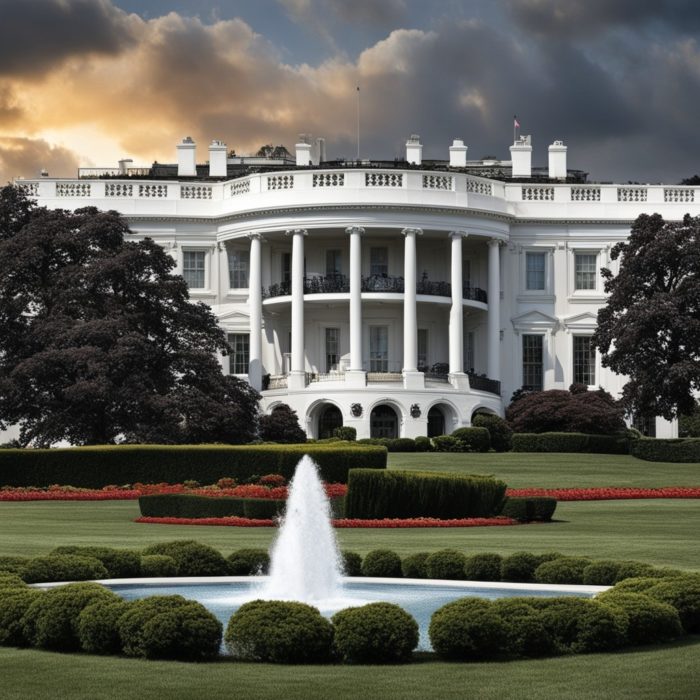(Mike Gleason, Money Metals News Service) As inflation continues to put the squeeze on consumers, precious metals markets are back on the move.
A solid close above the $2,400 level should set the stage for another push to new record highs. We’ll see if that is in the cards in the days ahead as it appears the yellow metal may be on the verge of making a run back to $2,400 as we speak.
Turning to the white metals, silver is posting big gains. Silver is not too far away from breaking out to a fresh 11-year high with a move above the $29 level. Although platinum hasn’t done much over the past few years, it may have quietly carved out a major bottom after becoming historically cheap versus gold.
Like silver, platinum is expected to run a large supply deficit this year. Metals firm Johnson Matthey is forecasting a physical platinum shortfall of nearly 600,000 ounces in 2024. That would be the biggest such deficit in 10 years.
Although falling automotive demand has weighed on platinum prices in recent years, supply is now shrinking faster. Other industrial sources of demand are stable or rising, and investment demand has the potential to increase markedly.
With gold commanding headlines this spring for hitting new records, more mainstream investors are waking up to the advantages of owning hard assets for wealth protection. But some are understandably wary of buying gold at a lofty price in nominal terms.
Platinum serves as a viable alternative for bargain hunters. And of course, historically, platinum has often traded at a premium to gold. So being able to obtain it today at a discount of better than $1,300 per ounce is an opportunity that may not last forever.
Although platinum bullion products are more limited in quantity and variety compared to gold, investors can obtain platinum in the form of familiar American Eagles and a few other officially minted coins as well as investment-grade bars and even wearable bullion jewelry.
In addition to protecting investors from currency depreciation, hard money in the form of bullion can also help protect investors from the corrosive effects of taxation.
Realized gains on precious metals aren’t tax exempt, of course. But unlike interest-bearing assets, bullion generates no income tax liabilities unless and until it is actually sold at a profit.
President Joe Biden is now threatening to raise tax rates and impose new taxes on investors in order to fund his massive $7.3 trillion budget wish list. Under Biden’s plan, high earners could pay an effective rate of more than 50% on their investment income.
Some members of Congress are fighting back – specifically on behalf of precious metals investors. U.S. Representative Alex Mooney of West Virginia recently re-introduced sound money legislation to remove all federal income taxation from gold and silver coins and bullion.
His Monetary Metals Tax Neutrality Act is backed by the Sound Money Defense League, Money Metals Exchange, and free-market activists. It would clarify that the sale or exchange of precious metals bullion and coins are not to be included in capital gains, losses, or any other type of federal income calculation.
Gold, silver, platinum, and palladium would be treated the same as U.S. fiat currency for tax purposes, meaning exchanging one form of money for the other would trigger no tax liabilities.
Gains on monetary metals are currently subject to a discriminatory long-term “collectibles” tax rate of 28%. Acting unilaterally, Internal Revenue Service bureaucrats have placed gold and silver in the same category as artwork, Beanie Babies, and baseball cards.
Sound money activists have long pointed out it is inappropriate to apply any federal income tax, regardless of the rate, against the only kind of money named in the U.S. Constitution. And the IRS has never defended how its position squares up with current law.
The Monetary Metals Tax Neutrality Act aligns with a broader national trend. With most states having already eliminated sales tax on the purchase of precious metals, state legislatures are increasingly introducing and approving measures to eliminate state income taxation of gold and silver.
Alabama and Nebraska each passed their version of this policy this year. Arizona, Arkansas, and Utah approved similar measures in recent years. And Iowa, Georgia, Oklahoma, Missouri, and Kansas also considered income tax exemptions in 2024, with several approving the bill across multiple committees and chambers.
In the meantime, investors who wish to legally shield bullion transactions from federal income taxes for as long as possible should consider holding eligible coins, rounds, and bars within an IRA.
Mike Gleason is a Director with Money Metals Exchange, a precious metals dealer recently named “Best in the USA” by an independent global ratings group. Gleason is a hard money advocate and a strong proponent of personal liberty, limited government and the Austrian School of Economics. A graduate of the University of Florida, Gleason has extensive experience in management, sales and logistics as well as precious metals investing. He also puts his longtime broadcasting background to good use, hosting a weekly precious metals podcast since 2011, a program listened to by tens of thousands each week.

